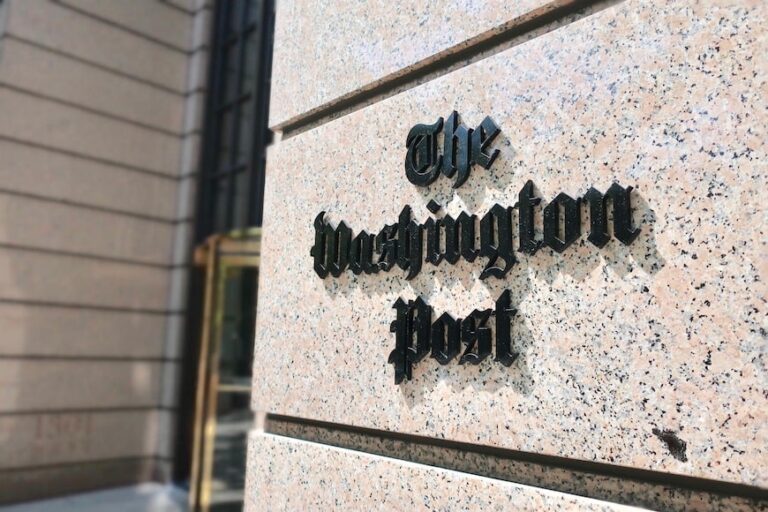Article 19 is deeply concerned about the recent decisions made by the owners of the Washington Post and Los Angeles Times to block Kamala Harris’ support in the upcoming presidential election. The intervention was reportedly due to concerns about potential retaliation if Donald Trump is re-elected, and marks the erosion of press freedoms seen at a time when democracy is under attack. An obvious example. This decision and the billionaire’s influence not only effectively silences critical voices during a crucial election, but also threatens the country’s editorial independence and press freedom. In our experience, the perception that economic interests drive editorial choices can empower dictators and discourage open debate. As elections approach, Article 19 calls on the media to restore its commitment to integrity, resist pressures to suppress free speech, and strengthen its role as defenders of democracy.
Last week, billionaire Jeff Bezos, owner of The Washington Post, Patrick Soon-Shiong, owner of the Los Angeles Times, has stopped the paper from endorsing Kamala Harris.
In a Washington Post column, Bezos defended the decision as a principled position to avoid any perception of bias. But the timing of the decision, 11 days after the election and after the editorial had already been drafted, raises serious concerns.
First, Article 19 concerns that the billionaire owner’s influence in this matter poses a serious threat to the state. editorial independence of news organizations. Newspaper endorsement of political candidates has a long history in the United States. Although its merits and influence are debatable, it is nevertheless an important prerogative of editorial boards. As newspaper companies face an economic crisis and a polarized environment in the United States, Few people dare to supporta troubling tendency for media institutions to become timid in the face of these pressures.
The recognition that economic interests may dictate the integrity of journalism has created an environment in which the media is reluctant to challenge powerful politicians. This concern is particularly acute given President Donald Trump’s current rhetoric against his critics and history of targeting the media. like before As Post editor Marty Baron pointed out:this decision could embolden President Trump to further intimidate the press, suggesting that fear rather than principle is guiding these choices.
Second, we believe that Article 19 undermines this decision. principles of open discussion It is essential for democratic governance. The impression that support is influenced more by ownership than editorial integrity can undermine public confidence in the integrity of news organizations. This decline in trust is particularly worrying in an era marked by increasing polarization, where the media plays a critical role in facilitating access to information. This may further enable dictators and powerful people to manipulate public opinion and suppress dissent.
The decision by the executives of these major newspapers not to endorse presidential candidates signals a worrying retreat from the press’s role as a defender of democracy and free speech.
In light of the upcoming election, the role of independent media is more important than ever. The Washington Post’s long-standing motto, “Democracy dies in darkness,” serves as a stark reminder that silence in the face of tyranny is not an option.
Article 19 requires all media in the United States to restore a commitment to journalistic integrity and resist pressure to silence critical voices. In doing so, they will not only be defending their own values, but also the democratic principles that underpin our society.

